Jim Zeigler says vote for Amendment 1, despite faults with ballot language
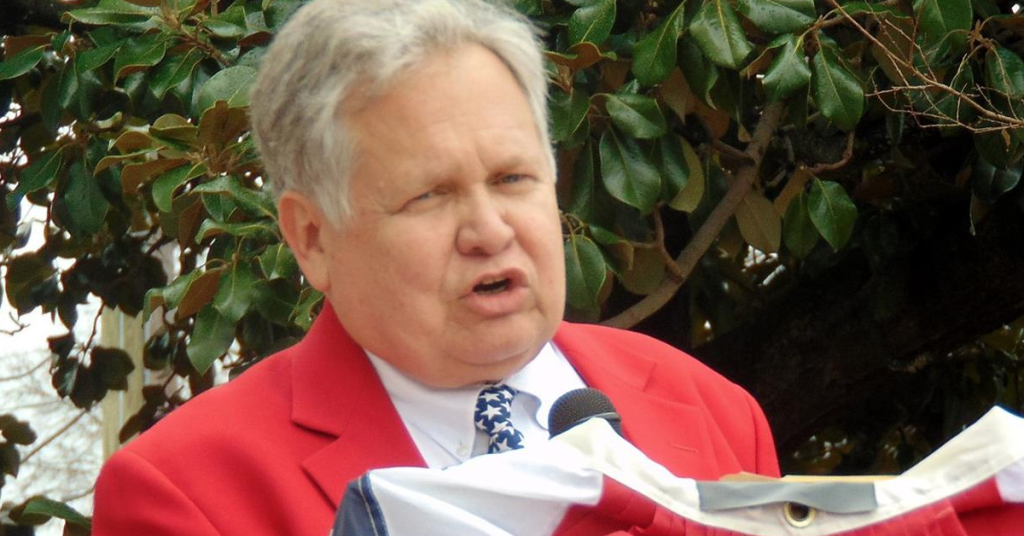
State Auditor Jim Zeigler came out with a statement in support of an upcoming ballot initiative known as Amendment 1, despite some misgivings about “misleading” language voters will encounter at the ballot box. The state constitutional amendment says it authorizes the legislature to provide a retirement for new District Attorneys and Circuit Clerks. Not exactly, said Zeigler in a release Monday. Zeigler contends the amendment would “abolish a pension program the officials already have, to which they make no contributions from their pay,” replacing that so-called “supernumerary system” with a standard retirement like that offered to other state employees, which require contributions from their paychecks. The state auditor said the amendment would save the state substantial sums – his figures show it would save taxpayers $291,000 a year starting immediately, growing to $8.4 million a year in 30 years – but worries “the inaccurate wording is likely to get Amendment One defeated when it would actually save millions for Alabama taxpayers.” “Citizens are against giving a new pension or any other benefit to politicians at this time. Because the wording says that a retirement is ‘provided’ to these officials, it could draw a no vote,” continued Zeigler. “Whoever wrote this wording should be fired. They did a horrible job. This proposal reads like they took Common Core grammar. The wording is almost opposite of what the amendment would actually do.” “I am coming with legislation to turn the wording of ballot propositions over to the State Auditor — an elected, constitutional, statewide official. I can write the measure accurately in 30 minutes, costing taxpayers nothing. I will do this for free,” Zeigler said. “I will cast a ‘Yes’ vote on Amendment One, which is the conservative, waste-cutting thing to do,” concluded the self-styled Alabama “Waste Cutter.”
Bernie Sanders fundraising request draws $5 million in one day

Bernie Sanders raised more than $5 million Monday by simply asking his network of small donors for more money. In the morning, his campaign announced it had raised $36 million in February, and he set a goal of hitting $40 million by the end of the day. A website tracking the fundraising effort shows the campaign had exceeded $41 million by Monday evening. Sanders bested Democratic presidential rival Hillary Clinton in January fundraising. He will have to file February’s campaign finance reports by March 20, a due date for all candidates. Those documents will show how much money he has left for his presidential bid. Republished with permission of the Associated Press.
Alabama Senate OKs more money for domestic violence coalition

Legislation passed the Senate last week, which will provide “significant funding” for the Alabama Coalition Against Domestic Violence (ACADV), an organization that provides support and advocacy to battered women and their children. SB 123 from Sen. Tim Melson (R-Florence) ensures that the organization will receive $169,633 for fiscal year 2016. Further, the bill has an “accountability mechanism to protect taxpayers,” which will require ACADV to provide an operations plan and financial statements quarterly and annually. “A Senate Republican legislative priority for this year is to protect families and children,” Melson said in a news release. “Providing adequate funding for domestic violence support and prevention will give hope to people who find themselves in a seemingly hopeless situation.” According to the group’s website, about 1 in 3 women is assaulted by a partner during adulthood and two-thirds of those assaulted by an intimate partner say they were victimized several times by the same partner over a 12-month period. More than 3 million children witness violence against their mothers or female caretakers by family members and alcohol abuse is cited in about 50 percent of all abusive relationships. Officials with the ACADV were unavailable to comment on the impact of the legislation.
Statewide amendment could save Alabama millions

While the presidential and senate races are garnering the most attention in the state, a proposed statewide constitutional amendment may well be Alabamians’ one opportunity to assist in helping to fill the state’s budget gap. Amendment 1 will appear on the ballot like this: Proposing an amendment to the Constitution of Alabama of 1901, to authorize the legislature to provide a retirement program for district attorneys and circuit clerks of the state who are first elected or appointed on or after November 8, 2016. (Proposed by Act 2015-342) While Secretary of State John Merrill condemned the wording of the amendment, which was drafted by the Fair Ballot Commission and does little to describe the intention of the legislation, the new law could save the state as much as $200 million over the next three decades. Merrill said the language as it appears on the ballot gives the impression that a new system is being created when, in fact, it is simply making changes to the current system. Currently, district attorneys and circuit clerks do not pay into the retirement benefits they receive. The new law would require new appointees to pay 8.5 percent of their annual salaries into the retirement fund and would raise the minimum age for retirement to 62. “They’re going to get their money either way,” Merrill said. “It’s just a matter of if you want them to pay to get that money.” The amendment has widespread support among state lawmakers, as well as the Alabama District Attorneys Association. Shelby County residents will also be voting on an amendment which would legalize the sale of alcohol on Sundays after noon.
State’s election results to be displayed via Secretary of State website
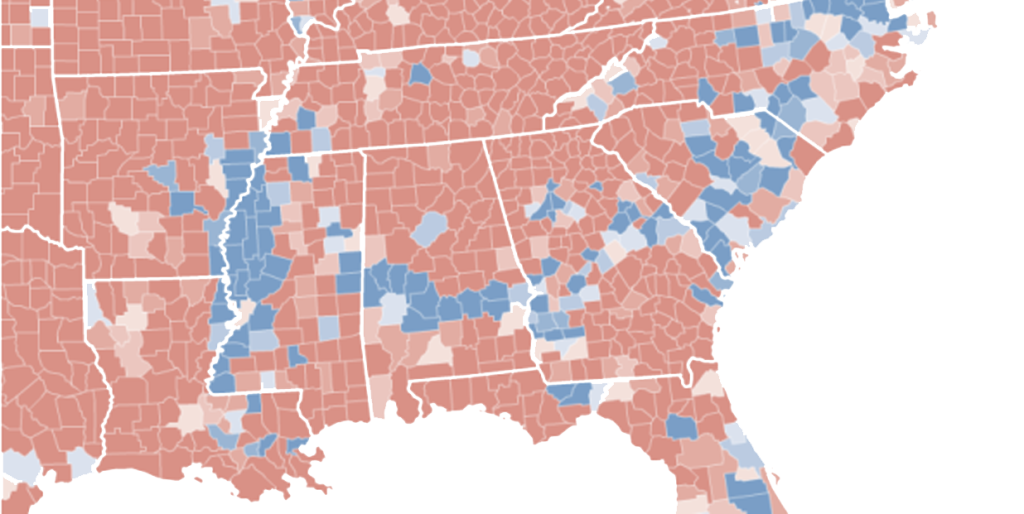
The SEC Primary, which is part of the Super Tuesday elections held across the nation, will be held Tuesday. In all, residents from more than 12 states will head to the polls and cast their votes for candidates hoping to earn a lion’s share of the 595 delegates at stake across the country. In an effort to keep the public abreast of up-to-date election results, the Alabama Secretary of State’s office will be reporting results at www.alabamavotes.gov throughout the night. Polls close at 7 p.m. and the first results will be electronically sent to the Office of the Secretary of State and streamed to the website. Results will include presidential primary numbers, as well as other federal, state and local elections, as well as amendments. “For the first time in the history of our state, all 67 counties have committed to participate in our election night reporting,” Secretary of State John Merrill said in a news release. “We want everyone who is interested, including media outlets, citizens and elected officials, to have the opportunity to view the results of the SEC Primary in real time!” Merrill said the electronic results would be a “great resource” for the people of Alabama and said the operation would not have been possible without the cooperation of “Alabama’s Probate Judges and other county officials.”
Alabama to be hub of scientific study of Southern tornadoes

About 40 scientists from around the nation are expected to participate in “VORTEX Southeast,” an upcoming study of the unique characteristics of tornadoes that develop in the South, weather researchers say. Like earlier studies in the Midwest, the research based in Huntsville, Alabama, will include mobile radars, drones and other equipment that can measure tornado intensity. It is set to run through March and April. VORTEX, an acronym for Verification of the Origins of Rotation in Tornadoes Experiment, began in the mid-1990s with a large tornado study that helped inspired the Hollywood film “Twister.” Another large study, VORTEX 2, took place from 2009-2010. This spring, researchers hope to learn more about the mysteries of Southern tornadoes, such as whether the landscape in the South gives them added power, and how to warn people at night, when many tornadoes strike in the South. The research aims to find ways of better forecasting tornadoes, communicating warnings more effectively and finding out how the public responds to those warnings, according to documents from the National Severe Storms Laboratory, which is involved in the planning. The Norman, Oklahoma-based lab is part of the National Oceanic and Atmospheric Administration. Unlike the original experiment, the latest iteration of the study will include several social scientists, who seek to learn more about how people respond to tornado threats in Southern states. They say they plan to conduct interviews with residents to probe the psychology behind tornado warnings and figure out ways to persuade people to take action when tornadoes are forecast. It’s human nature to seek “secondary confirmation” when tornado warnings are issued, but the nature of Southern tornadoes often prevents people from getting that, researchers say. On the wide open plains in the Midwest, “people can just look out their window and see it coming from miles away and still have time to take action,” said one of the researchers, Laura Myers, executive director of the Center for Advanced Public Safety at the University of Alabama. That confirms the threat for them, prompting them to take cover. But in the South, “we can’t see them coming because of the terrain, the trees and they’re often rain-wrapped,” Myers said. “We can’t rely on that secondary confirmation,” she said. “By the time we see it, it could be right on top of us.” So the question of how to satisfy people’s psychological need for secondary confirmation is one focus of the research. Another is how to warn people at night, when many of the South’s tornadoes tend to strike. Michael Egnoto, an assistant clinical professor and researcher at the University of Maryland, has held focus groups in Tuscaloosa, Alabama; Lexington, Kentucky; and Winston-Salem, North Carolina. “We’ve been working with meteorologists and they’ve been very, very open to the social science perspective,” Egnoto said. “They’re really excited about trying to understand the human factors and how that can positively impact outcomes: saving lives, reducing injuries and lowering the human and capital costs of storms.” Republished with permission of the Associated Press.
Auburn University study finds cyberattacks, regulation among concerns for state’s banks

A recent study by Auburn University’s Raymond J. Harbert College of Business, which looked into Alabama’s banking industry, found that state banks consider “regulatory uncertainty” and the chance of cyberattacks among the biggest threats to their business model. According to the study, 88 percent of Alabama banks listed “regulatory burden” among their chief concerns, with 78 percent calling “political and regulatory uncertainty” a “major impediment” to the way they do business. “We had major regulatory action in 2010 with Dodd-Frank and bankers have been bemoaning that ever since,” said John Jahera, Lowder Professor of Finance and one of the study’s authors. “From the bankers’ point of view, it added a lot of cost in terms of regulatory compliance.” Authors of the study say the industry is still reeling from “a triple whammy: the impacts of the financial crisis on credit, the juggernaut of regulatory reforms and competition in a field that reinvents itself at breathtaking speed.” Further, 73 percent of respondents cited competition from “non-bank” financial firms, which enjoy less regulations, as their chief competitive threat, while 70 percent said the threat of cyberattacks was a “serious concern.” Along with examining the apprehension of Alabama banks, the study also looked into the performance of state banks through the third quarter of 2015 and offered suggestions aimed at helping banks better assist customers. The study found that Alabama banks rank 40th in the nation for “aggregate return-on-assets” with $253 billion in assets. Alabama banks generated $169 billion in individual and business loans as of the third quarter of last year and provided $14 billion in small business loans. The study further states that Alabama’s 386,000 small businesses created more than 24,800 new jobs as of 2012 (the most recent numbers available) and, of the 131 banks with headquarters in the state, all but eight are considered “small” or “community” banks with less than $1 billion in assets. Researchers suggested an overall easing of regulations to assist banks in serving “underbanked or non-banked” consumers via short-term loans at lower rates than those offered by payday lenders and their ilk. Further, it was suggested that the “harmful effects” of the Dodd-Frank Wall Street Reform and Consumer Protection Act be examined in view of the realization that regulations have increased costs but not revenues.The study also called for the Department of Banking to look into ways of easing regulatory burden, and the costs associated therein, for state-chartered banks.
State legislative agenda preview: Feb. 29 – March 4, 2016
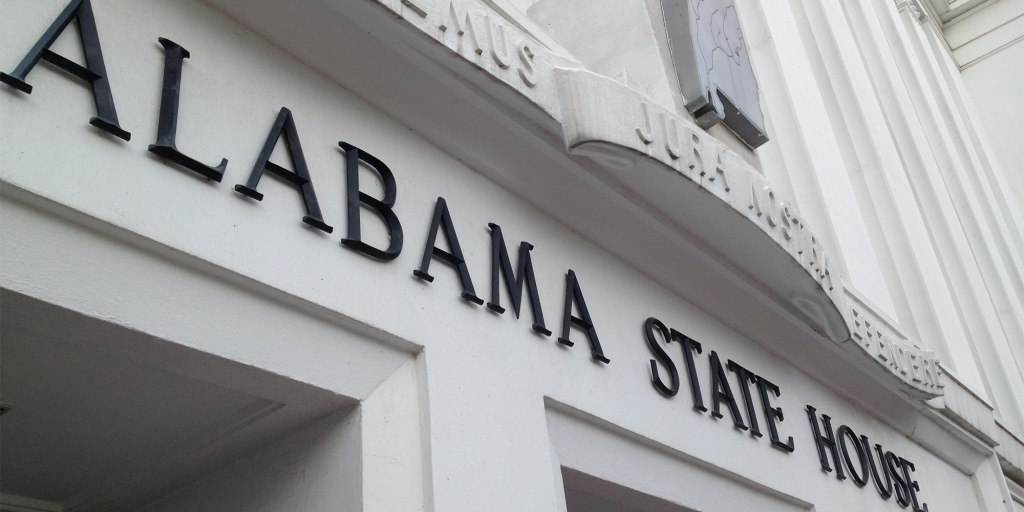
The Alabama Senate and House of Representatives will convene at 2 p.m. Tuesday for the fifth week of this year’s Legislative Session. Before the session gets underway, the Senate Committee on Fiscal responsibility and Economic Development will meet to discuss HB 37 from Rep. Arnold Mooney (R-Birmingham), which will add Alabama’s status as a “Right-to-Work” state in the constitution. The legislation has already cleared the House. Committee hearings will go into full force on Wednesday, with Senate Committee on Tourism and Marketing meeting to discuss gaming legislation that would create a state lottery in conjunction with other multistate gaming operations. The Senate Judiciary Committee will meet to take up SB 231 from Sen. Cam Ward (R-Alabaster), a bill that would clarify the definition of “moral turpitude,” crimes that now prohibit a person from regaining voting rights. The House Committee on Transportation, Utilities and Infrastructure will take up the Interstate Power Compact, which would authorize states involved to set regulations regarding clean air policies without adhering to rules mandated by the Environmental Protection Agency. The House Committee on Health will take up HB 183 from Rep. Kerry Rich (R-Guntersville), which would require abortion providers to provide women seeking an abortion with a sonogram – the bill would further provide penalties for failing to do so. The House Ways and Means General Fund Committee will meet to discuss the ambitious prison reform plan from Gov. Robert Bentley and the House Committee on State Government will take up Sen. Gerald Allen‘s (R-Tuscaloosa) controversial Alabama Heritage Preservation Act, which is being carried in the House by Rep. Paul Beckman (R-Prattville). On the floor, the Senate will debate a bill requiring Alabama high school students to pass a civics test to graduate and a bill setting term limits for senators and representatives. The Senate will also take up a bill mandating all car passengers to wear a seat belt, as well as Allen’s Alabama Heritage Preservation Act. The House will debate legislation requiring wireless service providers to give location information to law enforcement upon request and the Fantasy Contest Act, which would regulate fantasy gaming in the state. Also on the House’s agenda is the allowance of a state lottery and the easing of regulations for in-state alcohol makers.
Presidential Primary Brief: 252 days until Election Day
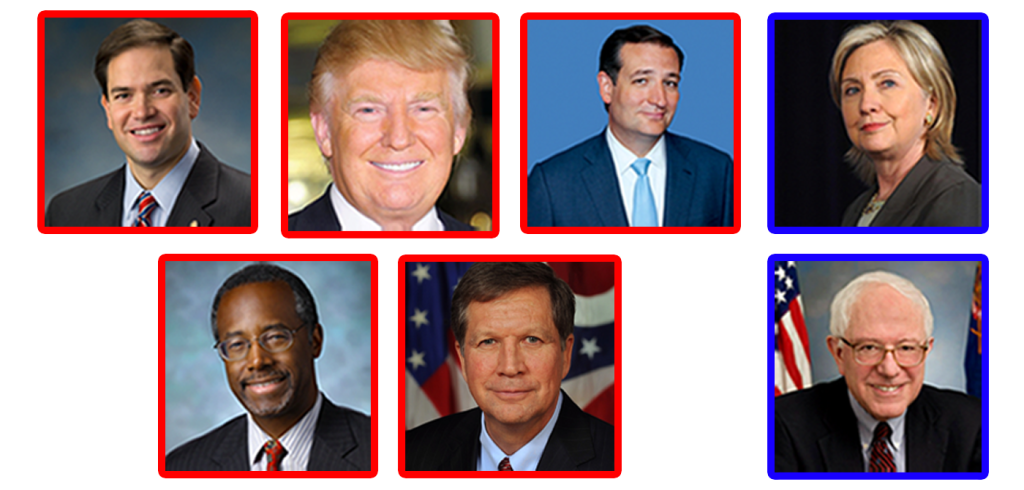
1 day until AL Presidential Primary 252 days until Election Day Convention Dates: Republican July 18-21, 2016, Democratic July 25-28, 2016 Weekly Headlines: Trump, Clinton top Super Tuesday polls Black voters reject Bernie Sanders in South Carolina Trump wins Nevada GOP Caucus, Rubio takes second Press Clips: Senator Jeff Sessions endorses Trump (Politico 2/28/16) Donald Trump won another major endorsement Sunday, surprising the political world when he walked onto the stage for a rally in Madison, Ala., with Alabama Sen. Jeff Sessions. Two days ahead of Super Tuesday when 11 states will cast votes, Trump continues to dominate the national airwaves and demonstrate growing support from Republican elected officials. While New Jersey Gov. Chris Christie, who threw his support behind Trump on Friday, is a pillar of the GOP establishment, Sessions is a tea party idol who helps validate the New York City billionaire with the conservative grassroots. Sessions’ endorsement is a major blow to Texas Sen. Ted Cruz, whose success may hinge on winning those Tea Party and evangelical voters — and who has so often cited Sessions as an ally in his fight against the 2013 immigration reform effort. Trump vs. Clinton: The election no one wants (CNBC News 2/26/16) Math is easy. Eight months of polling, two caucuses, and two primaries have made it clear that roughly one-third of Republican voters are enthusiastic about Donald Trump’s presidential bid; according to RealClearPolitics, national polls taken over the past week peg his support between 31 percent and 36 percent. The other two thirds are appalled that Trump may be their party’s nominee. In a five-person (or seventeen-person) race, one third of the votes is impressive, often a plurality. In a two-person race, one third of the votes is a dismal, distant loss. Trump is thus extremely vulnerable in any two-person race, and quite likely to win anything bigger. Chris Christie slammed for Donald Trump endorsement (USA Today 2/28/16) Meg Whitman, the CEO of Hewlett Packard Enterprise and a top supporter of Chris Christie’s failed presidential bid, on Sunday sharply criticized the New Jersey governor’s endorsement of Donald Trump as “an astonishing display of political opportunism.” “Donald Trump is unfit to be president,” Whitman, who served as Christie’s national finance co-chair, said in a statement to NBC. “He is a dishonest demagogue who plays to our worst fears.” Whitman called on Christie’s donors and supporters to “reject the governor and Donald Trump outright.” “I believe they will,” she added. “For some of us, principle and country still matter.” Sanders: I can still win the nomination (Politico 2/28/16) Sen. Bernie Sanders, dealt a heavy loss in South Carolina on Saturday, said he still has a path to the Democratic nomination and that Saturday’s defeat was “about as bad as it’s going to get.” “On Tuesday, we’re going to have over 800 delegates being selected. I think we’re going to win a very good share of those delegates,” he said on CBS’s “Face the Nation.” “You’ve got major states coming up. And I think the important point is that people throughout this country are resonating to our message.” Cruz, Rubio reveal tax info, Cruz hints Trump tied to mob biz (Fox News 2/28/16) Texas Sen. Ted Cruz on Sunday pushed the call for front-running GOP rival Donald Trump to release his tax returns, suggesting the IRS documents might show connections to “mafia” businesses, donations to Planned Parenthood and other items that would ruin his White House bid. “Maybe those business deals are more extensive that reported,” Cruz told NBC’s “Meet the Press.” “Primary voters deserve to know before the nomination because Hillary Clinton will.” Cruz, who has released five years of returns and two-page summaries for the past four years, repeated 2012 GOP presidential nominee Mitt Romney’s suggestion last week that Trump’s returns could include a “bombshell.” Trump declines to condemn KKK (Politico 2/28/16) Donald Trump on Sunday morning refused to condemn actions taken and comments made by the Ku Klux Klan and one of its former leaders, claiming he needed to do “more research” before taking a position. Speaking on CNN’s State of the Union, Trump was asked by Jake Tapper to respond to recent comments made by white supremacist David Duke, the former grand wizard of the Ku Klux Klan. Duke and other white supremacist groups have supported Trump’s bid for the Republican presidential nomination. Lamar Alexander endorses Rubio (Politico 2/28/16) Marco Rubio has earned the endorsement of yet another member of the U.S. Senate: Tennessee Sen. Lamar Alexander. The endorsement is the most recent in a long list of sitting senators supporting Rubio. Tennessee Gov. Bill Haslam announced his support of Rubio last week. Alexander, himself a former Republican presidential contender, told NBC News that Rubio is “the conservative candidate who can inspire us, win the election and lead our country.” Florida will play key role in GOP presidential race (USA Today 2/28/16) If Republicans opposed to Donald Trump’s presidential nomination can’t slow him down by mid-March, they’ll have one final, desperate card to play. It’s called Florida. By the time the Sunshine State holds its GOP primary March 15, Trump still won’t have the 1,237 delegates needed to lock up the nomination. Even if he wins every nomination contest over the next two and a half weeks — in 19 states, Puerto Rico and the District of Columbia — he’ll be more than 200 delegates short. Florida is the largest of five prizes up for grabs on March 15. (Illinois, Missouri, North Carolina and Ohio also hold primaries that day.) A total 358 delegates are at stake that day, with Florida accounting for 99. Whichever GOP candidate finishes first gets all 99. “March 15 could be the last stand,” Miami lawyer and conservative Republican activist Al Cardenas said.
This week in the U.S. House of Representatives, Senate: Feb. 29 – Mar. 4, 2016
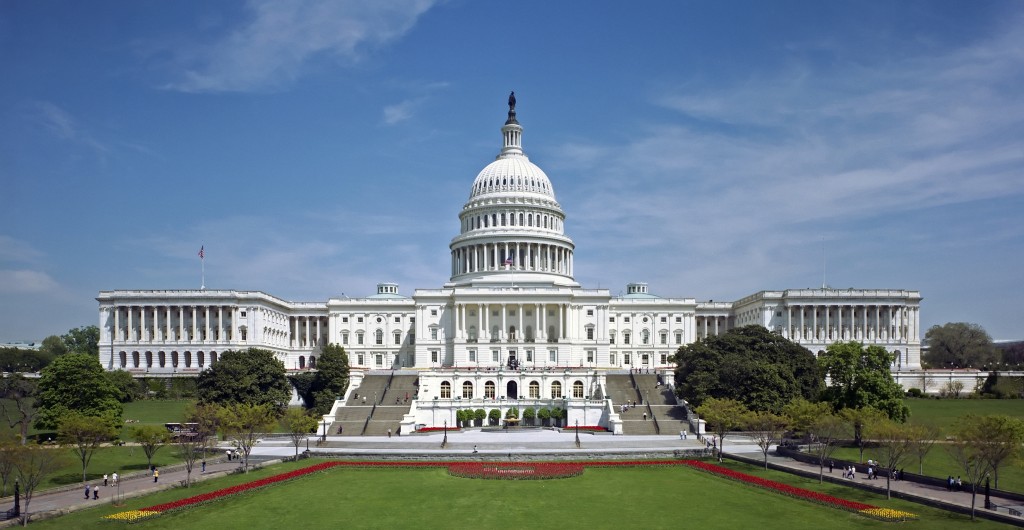
The U.S. House of Representatives and U.S. Senate both have a busy week ahead, as the House will focus on delaying an EPA rule described by opponents as job-killing and tackling a Medicaid issue, meanwhile the Senate will take on legislation to address drug abuse. House Schedule On Monday and Tuesday, the House is in session and will consider several bills under Suspension of the Rules. A full list of bills can be found here. On the floor this week: H.R. 3716: the Ensuring Terminated Providers are Removed from Medicaid and CHIP Act. The bill requires states to notify the Health and Human Services Department of health care providers who are terminated from the state’s Medicaid or Children’s Health Insurance Program (CHIP) program because of fraud or other “for cause” reasons, and for HHS to maintain a database of terminated providers in order to prevent them from participating in another state’s Medicaid program. It also requires each state to publish a directory of health care and dental providers that accept Medicaid. Alabama co-sponsor(s): None. H.R. 4557: the Blocking Regulatory Interference from Closing Kilns Act. The bill delays new EPA rules that establish national emission standards for hazardous air pollutants for the manufacturing of brick and structural clay products or clay ceramics until all judicial reviews are completed. Alabama co-sponsor(s): Rep. Martha Roby (AL-02); Rep. Terri Sewell (AL-07) On Friday, the House is not in session. Highlights of what is happening in House Committees this week: Budget Season: Budget season continues with the Natural Resources Committee holding a related hearing. The House Appropriations committee has also begun its FY17 hearing slate, a full list of those hearings can be found here. Executive Overreach Task Force: On Tuesday, the Executive Overreach Task Force will hold a hearing titled “The Original Understanding of the Role of Congress and How Far We’ve Drifted From It.” More information here. Encryption: On Tuesday, the House Judiciary Committee will hold a hearing titled “The Encryption Tightrope: Balancing Americans’ Security and Privacy.” More information here. Jobs: On Tuesday, the House Ways and Means Committee will hold a hearing titled “Getting Incentives Right: Connecting Low-Income Individuals with Jobs.” More information here. Veterans: On Wednesday, the House Veterans’ Affairs Committee and Senate Veterans’ Affairs Committee will hold a joint hearing on “The Legislative Presentation of the Veterans of Foreign Wars of the United States.” On Thursday, the Committees will hold another joint hearing on “The legislative presentation from AMVETS, Paralyzed Veterans of America, Vietnam Veterans of America, Military Order of the Purple Heart, Blinded Veterans Association, Gold Star Wives of America, the Wounded Warrior Project, and the National Guard Association of the United States.” More information here and here, respectively. SNAP: On Wednesday, the House Agriculture Committee will hold a hearing titled “Past, Present, and Future of SNAP: Examining State Options.” More information here. World Threats: On Wednesday, the House Armed Services Committee will hold a hearing titled “World Wide Threats.” More information here. Senate Schedule The Senate will resume legislative business on Monday. Up for consideration this week, S. 524: the Comprehensive Addiction and Recovery Act, a bill that would award grants to address the national epidemics of prescription opioid abuse and heroin use. Alabama co-sponsor(s): None. Highlights of what is happening in Senate Committees this week: Homeland Security: On Tuesday, the Senate Appropriations Subcommittee on Homeland Security will hold a hearing to consider the Transportation Security Administration’s FY 2017 budget request. More Homeland: On Wednesday, the Senate Homeland Security and Governmental Affairs Committee will hold a hearing to consider nominations Jobs: On Wednesday, the Senate Judiciary Committee will hold a hearing titled “The Distortion of EB-5 Targeted Employment Areas: Time to End the Abuse.” More Homeland: On Thursday, the Senate Homeland Security and Governmental Affairs Committee will hold a hearing titled “Dogs of DHS: How Canine Programs Contribute to Homeland Security.” Nominations: On Thursday the Senate Judiciary Committee will hold a hearing to consider nominations and legislation.
Racial feud erupts as Republicans fight ‘unstoppable’ Donald Trump
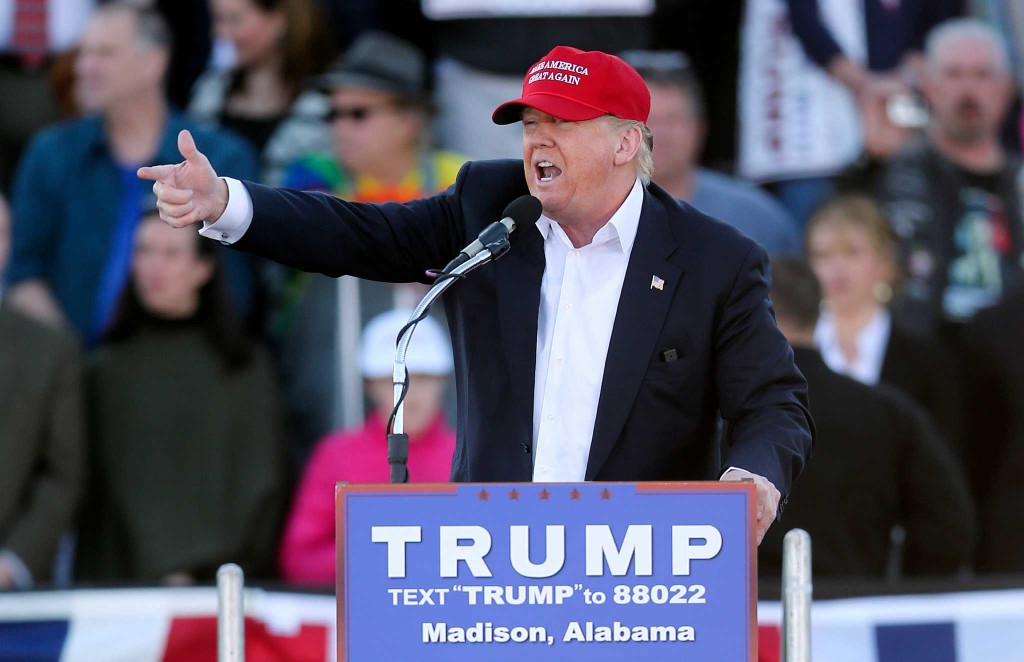
The final-days sprint to Super Tuesday has erupted into a feud over a white supremacist as Donald Trump‘s Republican rivals scramble to stop the billionaire businessman from becoming an “unstoppable” force in the 2016 presidential contest. Ted Cruz and Marco Rubio continued to hammer the GOP front-runner’s character and lack of policy specifics in a series of attacks Sunday while courting voters across the South. But it was Trump’s refusal to denounce an implicit endorsement from former Ku Klux Klan leader David Duke that dominated the narrative less than two days before Republican voters across 11 states head to the polls. The new focus comes as Trump’s rivals acknowledge that time is running out to prevent the former reality television host from becoming the Republican Party’s presumptive nominee. He took a new step in that direction by earning the endorsement of Alabama Sen. Jeff Sessions, a would-be Cruz ally who backed Trump instead. “There is no doubt that if Donald steam rolls through Super Tuesday, wins everywhere with big margins, that he may well be unstoppable,” Cruz said Sunday on CBS’ “Face the Nation.” Trump was asked Sunday on CNN’s “State of the Union” whether he rejected support from the former KKK Grand Dragon and other white supremacists after Duke told his radio followers this week that a vote against Trump was equivalent to “treason to your heritage.” “Well, just so you understand, I don’t know anything about David Duke. OK?” Trump told host Jake Tapper. “I don’t know anything about what you’re even talking about with white supremacy or white supremacists.” Cruz soon responded on Twitter, telling Trump: “You’re better than this. We should all agree, racism is wrong, KKK is abhorrent.” Rubio went further in a message to thousands of supporters in Leesburg, Virginia: “We cannot be a party who refuses to condemn white supremacists and the Ku Klux Klan,” Rubio said. “Not only is that wrong, it makes him unelectable. How are we going to grow the party if we nominate someone who doesn’t repudiate the Ku Klux Klan?” Trump was asked Friday by journalists how he felt about Duke’s support. He said he didn’t know anything about it and curtly said: “All right, I disavow, ok?” He hasn’t always claimed ignorance on Duke’s history. In 2000, he wrote a New York Times op-ed explaining why he abandoned the possibility of running for president on the Reform Party ticket. He wrote of an “underside” and “fringe element” of the party, concluding, “I leave the Reform Party to David Duke, Pat Buchanan and Lenora Fulani. That is not company I wish to keep.” Trump has won three of four early voting states, roiling a party divided over the prospect of the brash billionaire becoming its nominee. Late Sunday, Nebraska’s Ben Sasse became the first sitting Republican senator to say explicitly that he would not back Trump if he does win the nomination. “If Trump becomes the Republican nominee my expectation is that I’ll look for some 3rd candidate — a conservative option, a constitutionalist,” Sasse wrote on Twitter. The Duke debate seeped into the Democratic contest, as Vermont Sen. Bernie Sanders also lashed out on Twitter: “America’s first black president cannot and will not be succeeded by a hatemonger who refuses to condemn the KKK.” Asked about the issue on Monday, Trump said he had disavowed Duke and asked, “How many times do I have to continue to disavow people.” In a phone-in interview with NBC’s “Today” show, the real estate mogul was asked about earlier remarks in interviews where he had seemed to stop short of disavowing Duke. He said the questioner in the earlier interview had asked about Duke and various “other groups,” saying he had difficulty with an earpiece he was wearing for the phone-in interview and didn’t want to disavow groups whose identity he didn’t know. Trump also said he had clearly made separation with Duke over the weekend in posts on Twitter and Facebook. Hillary Clinton re-tweeted Sanders’ message. She scored a lopsided victory in South Carolina the day before, fueled by a huge advantage among African-Americans, a key Democratic constituency that will also play a dominant role in several Super Tuesday states. Clinton turned her attention to the Republican field, all-but-ignoring rival Sanders from campaign events in Tennessee on Sunday. Starting her morning with stops at two Memphis churches, Clinton offered an implicit critique of Trump, issuing a call to unite the nation and asking worshippers to reject “the demagoguery, the prejudice, the paranoia.” While she never explicitly mentioned Trump’s name, the comments referenced his campaign slogan, “Make America Great Again.” ”America has never stopped being great, our task is to make American whole,” said Clinton at Greater Imani Cathedral of Faith, prompting a chorus of “amens” from the crowd. The latest shake-up in the GOP race comes as attention shifts to the South, where the region will dominate on Super Tuesday — March 1 — and the weeks beyond. Trump holds commanding leads across the region, with the exception of Cruz’s home state of Texas, a dynamic that puts tremendous pressure on Rubio and Cruz as they try to outlast each other and derail Trump. Trump mocked the Republican establishment and his flailing rivals. “It’s amazing what’s going on,” he told NBC, calling his campaign a “movement.” Republished with permission of the Associated Press.
Donald Trump at 49% nationwide among GOP voters in new CNN/ORC poll

A day before the biggest day of the 2016 presidential election cycle, Donald Trump‘s lead nationally in the GOP presidential race is at an all-time high. A CNN-ORC poll released on Monday has Trump at 49 percent support. Marco Rubio is a distant second with 16 percent. Ted Cruz is third with 15 percent. Ben Carson has 10 percent, and John Kasich is at 6 percent. Trump and Rubio both have seen their popularity rise 8 percentage points from a similar poll taken last month. The CNN/ORC poll from January had Trump at 41 percent, and Rubio at just 8 percent. Kasich was only at 1 percent in that survey. On the Democratic side, Hillary Clinton tops Bernie Sanders 55 percent to 38 percent in the new poll, a slightly wider margin than she held in late January before any primaries or caucuses were held. The CNN/ORC Poll was conducted by telephone Wednesday through Saturday among a random national sample of 1,001 adults. Results for the 418 registered voters who are Democrats and Democratic-leaning independents have a margin of sampling error of plus or minus 5 percentage points. It is the same for results among the 427 Republican and Republican-leaning voters.


